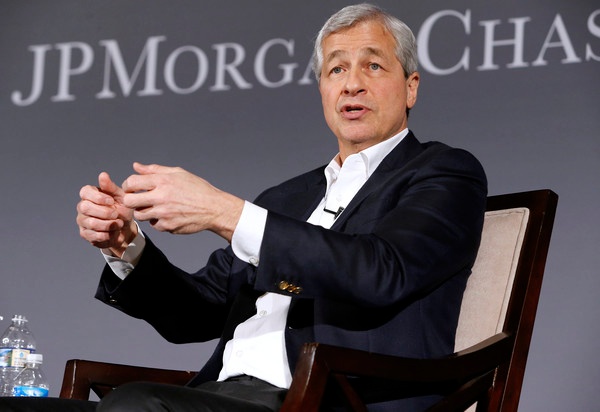Fed wants to raise bank capital levels, CEO publicly attacked and warned.
JPMorgan CEO Jamie Dimon slams tougher capital rules proposed by US regulators。It could push more lending into private credit markets and have "unintended consequences" for the US economy.。
On September 11, local time, JPMorgan Chase CEO Jamie Dimon lashed out at tougher capital rules proposed by U.S. regulators.。It could push more lending into private credit markets and have "unintended consequences" for the US economy.。
In July, U.S. regulators released a draft of bank capital rules。It is mentioned in the draft that the capital level of banks will be further increased.。Regulators believe that capital is the buffer that will determine how banks must hold to absorb future losses, and that higher levels of bank capital will effectively prevent a recurrence of the industry chaos triggered by the collapse of Silicon Valley banks in March.。
Regulators said the hike would mainly affect large banks, and that most had enough capital to comply.。It is understood that the new rules will apply to banks with assets of more than $100 billion, and banks affected by the draft are expected to need to increase their capital requirements by a total of 16 per cent.。The rule is expected to come into effect in 2028.。
The draft has been controversial since its release.。Among them, JPMorgan Chase CEO Jamie Dimon has been standing against the new rules of the "bridgehead"。
Dimon says JPMorgan will need to hold 30% more capital than European banks under new rules。"If U.S. banks had to hold 30 percent more capital than their global competitors, it would be a huge negative in the long run," he said.。"
Dimon argued that the regulator's proposal to require banks to set aside more capital to guard against risk was "very disappointing" and that there was a "lack of transparency" from the regulator about its rationale.。Dimon also questioned the regulator's real intention to roll out the draft.。He said: "All I want is fairness, transparency and openness.。"
This is not the first time Dimon has criticised the approach taken by regulators.。Dimon had said in July that non-bank lenders that were not subject to the same capital rules would gain a competitive advantage.。Banks face competition to retain depositors as customers seek higher yields, which means higher funding costs and tighter profit margins。
Dimon said: "Banks' deposits will fall and net interest income will fall to a different level.。For now, net interest income - a key measure of profitability - has been falling for banks in many parts of the country.。
Still, Dimon is more confident about JPMorgan's prospects。He sees JPMorgan's full-year net interest income forecast remaining unchanged at $87 billion this year。At the same time, he expects JPMorgan's trading and investment banking operations to decline slightly in the third quarter from a year earlier, by between 1% and 2%.。
Dimon also offered some caveats about the direction of the economy。He said he was cautious about the economic environment in the United States and around the world.。"I think the likelihood of some kind of accident is greater than other people think.。"

It's worth noting that Dimon isn't the only executive on Wall Street who's unhappy with the new bank capital rules.。Alastair Borthwick, Bank of America's chief financial officer, also warned that the rules could limit bank lending because risk-weighted assets could be double-counted in some cases.。Goldman Sachs CEO David Solomon also said in an interview last week that the new bank capital rules would not materially enhance the soundness of banks and could also hurt economic growth.。
In addition, concerns have been raised within the Fed about the draft。Fed Governor Christopher Waller warned that the proposal to increase bank capital could increase the cost of credit for banks, while another Fed Governor, Michelle Bowman, argued that it would not increase financial stability but could instead impose real costs on banks and their customers。
·Original
Disclaimer: The views in this article are from the original Creator and do not represent the views or position of Hawk Insight. The content of the article is for reference, communication and learning only, and does not constitute investment advice. If it involves copyright issues, please contact us for deletion.